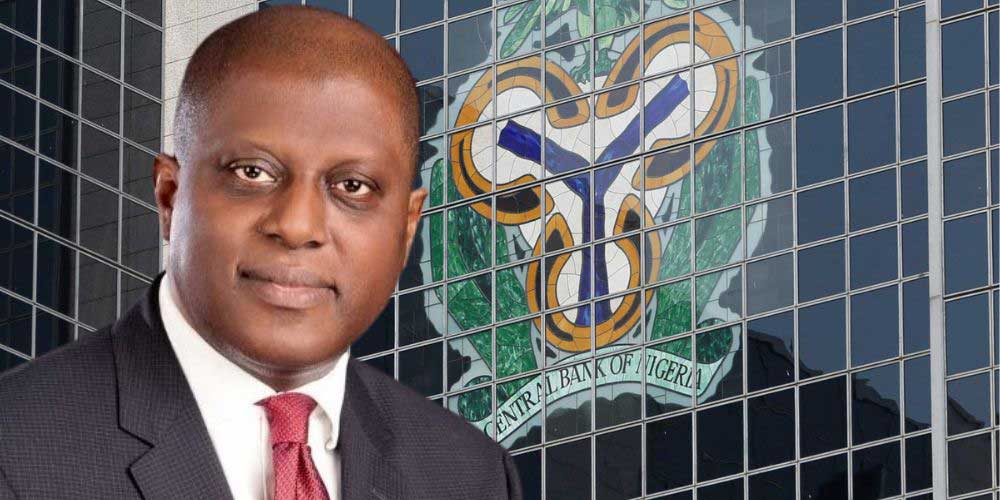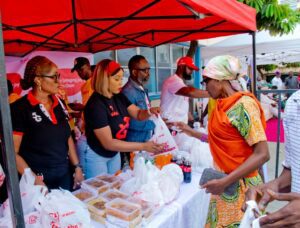


Cardoso clarifies CBN’s stance on Naira defence, market intervention
…Reflects on lessons learned in first six months as CBN boss
…As CBN, Ministry of Finance forge strong alliance to combat inflation
By Sodiq Adelakun
The Governor of the Central Bank of Nigeria, Mr. Yemi Cardoso has clarified the stance of the apex bank on Naira defense and market intervention.
He made this known in an exclusive interview with the International Monetary Fund African Department Director, Abebe Selassie, at the IMF/World Bank Spring Meetings in Washington DC, United States of America, held between April 11 and 20, 2024.
The Governor unveiled his strategic vision for Nigeria’s monetary policy, shedding light on the bold decisions that transformed the Naira from its worst state to the best-performing within a span of six months.
Cardoso addressed concerns regarding the defense of the naira, emphasising that it is not the bank’s intention to intervene in currency markets to prop up the naira’s value.
He outlined the CBN’s overarching policy and philosophy, which prioritizes a market-driven approach to currency valuation. ”Basically, what we are encouraging is for the market to be a willing buyer, willing seller, and price-discover-led one,” the Governor explained.
According to him, “I know that the issue of defending the naira has become an elephant in some room. I want to try to make this as clear as possible. It is not our intention to defend the naira. It is not.
“Much as I have read in the recent few days, some opinions with respect to what is happening with our reserves. If you think back to what our overall policy and philosophy has been here, you can see that it is counter-intuitive. Basically, what we are encouraging is for the market to be a willing buyer, willing seller, and price-discover-led one.
“Ultimately, I perceive a future where the CBN may really not need to intervene except in very unusual circumstances.
“As long as we have a vibrant currency market, why do we need to intervene? I can understand that, especially at the outset, we have experienced that we needed to get the Bureau de Change segment going.
“We had to release tiny amounts of money to catalyse those happenings. Individuals must have funds to send their kids abroad and do things that are important. It is important not to keep them out of the mainstay.
“What we have seen with the shifts in our reserves are the shifts that you would find in any country’s reserve situation. When debts are due and payments need to be made, they are to be made, because that is also part of keeping your credibility intact.
Recall that when the Naira has one time been regarded as the worst-performing currency of any country.
He stated: “When I started, we had a situation where within a month or two, we were regarded as the worst-performing currency of any country.
“Six months later, we are judged to have the best-performing currency of any country. So, I think those things speak for themselves. A situation where in the recent past, the greatest amount of liquidity on a daily basis was in the region of $200m to $300m; in six months, we have traded over $1bn.
“FX liquidity has taken a centre stage in the activity of the monetary side, and I think people see that; they also see the exchange rate coming down and they understand that there is a lag. Ultimately, the objective is that we can moderate inflation.”
…Cardoso reflects on lessons learned in first six months as CBN boss
Cardoso emphasised on the daunting challenges he faced upon assuming office, including high inflation rates and a severely stressed exchange rate, which had eroded trust and confidence in the system.
He reiterated the critical importance of rebuilding trust, acknowledging the significant backlog of unmet forward transactions and committing to address them as a means to regain confidence.
He however highlighted the integration of senior leadership from the Ministry of Finance within the Monetary Policy Committee (MPC).
…CBN, Ministry of Finance forge strong alliance to combat inflation
“In the MPC, we have the presence of very senior leadership from the fiscal side as members of the MPC in the person of the Permanent Secretary of the Ministry of Finance, who is here today, and we always have very good and open dialogue on issues so we are able to hear the different sides of the situation. Beyond that, we have set up different committees that work hand-in-hand with respect to ensuring that we are on the same page with respect to taming inflation.
“It is also commendable that the Ministry of Finance has begun that process of securitising the outstanding Ways and Means, and I think that is extremely commendable. I think it is less of an issue now, and we can work better together, bearing in mind that as we move towards inflation targeting, there has to be a strong partnership for it to be successful,” he reiterated.
The Governor highlighted the shift away from interventionist policies towards orthodox monetary practices, signaling a clear departure from past approaches.
He emphasised the necessity of communicating effectively with stakeholders, particularly international investors, to foster understanding and restore faith in Nigeria’s economic trajectory.
Meanwhile, Cardoso outlined bold measures such as liquidity mopping and interest rate hikes, demonstrating a commitment to tackling economic challenges head-on for the benefit of all Nigerians.
He stressed the importance of continuous dialogue and transparent communication to elucidate the rationale behind policy decisions and manage public perceptions.
Collaboration with the fiscal side was deemed essential for the success of inflation-targeting objectives, with Cardoso highlighting the need for a harmonious partnership with the Ministry of Finance to achieve sustainable economic outcomes.
Reflecting on his first six months in office, Cardoso emphasised the paramount importance of trust and credibility in driving effective policy implementation, noting the need for consistent communication and realistic expectations.
When questioned about currency risk management and the development of currency risk markets, Cardoso hinted at ongoing considerations, suggesting a phased approach to implementation aligned with broader economic objectives.



